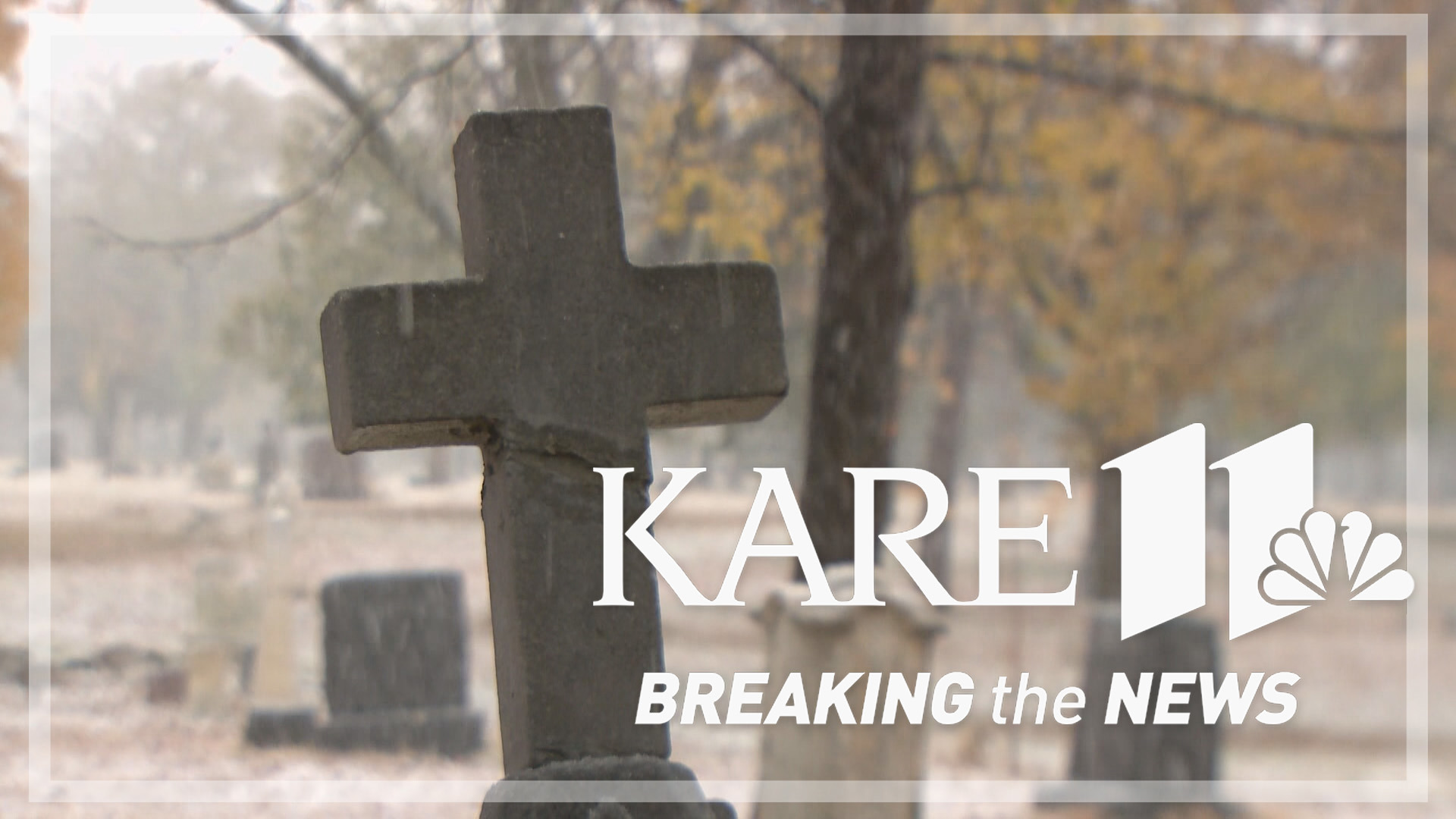MINNEAPOLIS — There's a cemetery in Minneapolis and it's known as the oldest in the city, but this isn't a story about how spooky or haunted it is.
Rather, it's giving a voice to the thousands of people buried at Pioneers & Soldiers Cemetery who had no where else to go.
"I just feel responsible for them," said Sue Hunter Weir.
Sue Hunter Weir is a historian who's helping bring back to life the stories of the some 27,000 people who are buried at the cemetery. "As a society we choose who to remember and who we choose to forget and we're going after the people who have been forgotten."
For 25 years, she's researched the cemetery that first opened on private land in 1858. New England transplants, Martin and Elizabeth Layman, allowed a parishioner to bury his son there after he died from tuberculosis.
"These are people at Pioneers & Soldiers who were not lauded in the community as big names, but they made Minneapolis the city we know today," said John Crippen, Hennepin History Museum Executive Director.
He and Hunter Weir recently helped open an exhibit about the cemetery at the museum that now runs through 2025 if people want to visit.
"She's one of the memory keepers and frankly a memory restorer," said Crippen about Hunter Weir.
What made the cemetery most unique is the Layman's would often donate plots to families who couldn't afford them. There were also no restrictions - integrating all races, ethnicities and religion, unlike more public and church graveyards.
"The point of an exhibit like this and the research is this is how we develop empathy," said Hunter Weir. "You start to care about people."
She uncovered there are up to 12,000 children buried at the cemetery and that many of them died due to disease and contaminated water.
There are also 10 African American Civil War veterans, many of whom who didn't have markers until now.
And nearly 50 women who took their own lives, many leaving behind notes the newspapers would print then, including Anna Clark. She wrote about agony after losing eight babies and used her last nickel on the streetcar to die at the cemetery where her husband was also buried.
"I'm not related to her by biology or any other way but she matters, she matters deeply to me," said Hunter Weir.
Hunter Weir's work can sometimes right wrongs or it can reveal wretched family history, but ultimately she teaches us that learning from the past, only helps us better understand the future.
"It gives people that commonality and it gives people an understanding of how their community was built," said Crippen.
The cemetery is closed for the season, but it will open again for Veteran's Day on November 11th.

